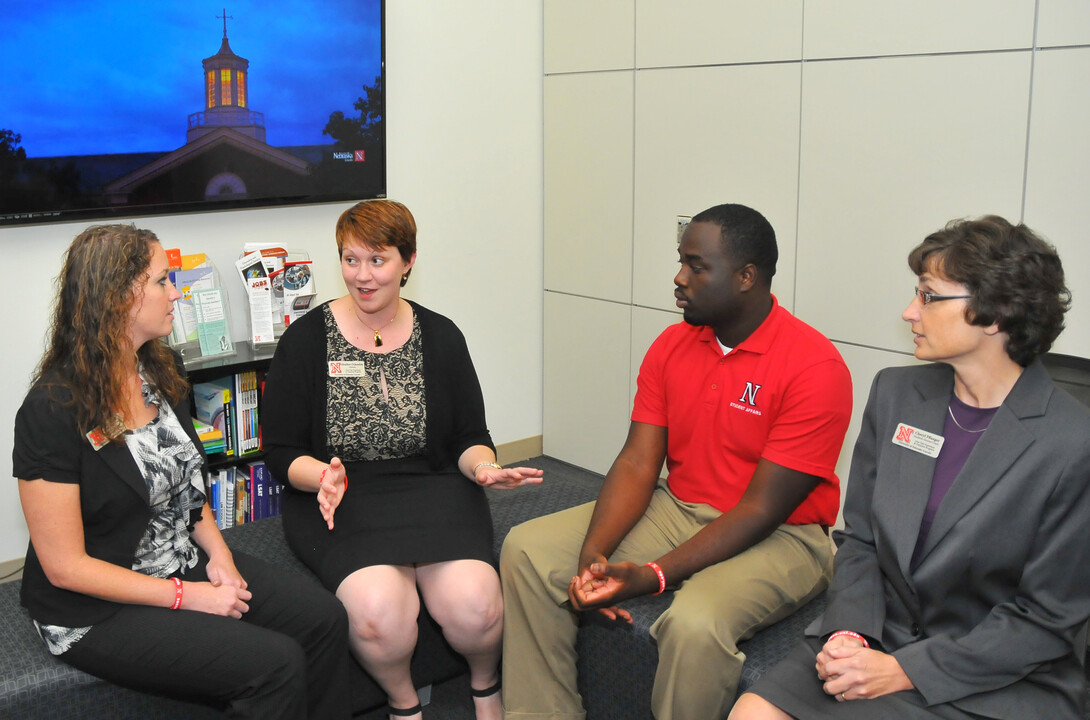
A new campus team is prepared to help students make the most of their UNL experience — and they’re hoping faculty and staff will lend a hand.
First-Year Experience and Transition Programs is one of three Academic Affairs units located in a redesigned Love Library 127. Led by Heather Ockenfels, the programs’ primary goal is to offer assistance to students not supported by other campus programs.
“The biggest thing we are here for is to let students know that we want them to be successful here at UNL and that they are not alone,” Ockenfels said. “We are here to support them in any way necessary, from academics to life skills.”
Ockenfels comes to UNL after helping build a similar student success program at the University of Iowa. She leads a team of four that includes academic success coaches Nicole Smith (formerly an academic adviser with the College of Arts and Sciences) and Cheryl Pflueger; and coaches Dayne Hutchinson and Kim Schumacher.
The First-Year Experience and Transition Programs team offers one-on-one student coaching, free workshops and outreach to students referred by instructors.
Outreach to students is completed by faculty sending messages through MyPLAN, UNL’s online student advising system.
“If faculty have a concern about a students work in class or just want to lend a hand but don’t now how, they can raise a flag through MyPLAN,” said Ockenfels. “We will contact the faculty member within 24 hours and review their concerns. And, we will reach out to the student and see if they would like some assistance.”
Members of the First-Year Experience and Transition Programs team are also willing to come into any classroom and talk about services offered. And, students can request one-on-one coaching through MyPLAN, sending email to success@unl.edu or calling 402-472-1880.
The program is also offering a series of academic success workshops, starting with “Time Management and Learning to Plan 101,” at 4 p.m. Sept. 4 in 111 Love Library. Other topics include connecting with instructors, study skills, test-taking strategies and stress management. A complete list is available at http://success.unl.edu/workshops. Workshops are free and open to all students.
The program has also started a tutoring program called Tutor Stop, and created an incentive program for students caught studying. In January, they will start assisting first-year students on academic probation.
Faculty and staff are encouraged to refer students to the program. Faculty can also make an impact by encouraging students to schedule an appointment with an academic success coach and including information about the program in syllabi.
“When students graduate with degrees from Nebraska, we want them to walk away feeling like they’ve connected here. We want this to feel like home,” said Ockenfels. “Student success programs help with retention, but the impact is much bigger. It’s about alumni giving back and continuing to be involved in the university. And, it’s about students graduating and staying to make impacts in Nebraska.”
For more information on the First-Year Experience and Transition Programs, go to http://success.unl.edu.







